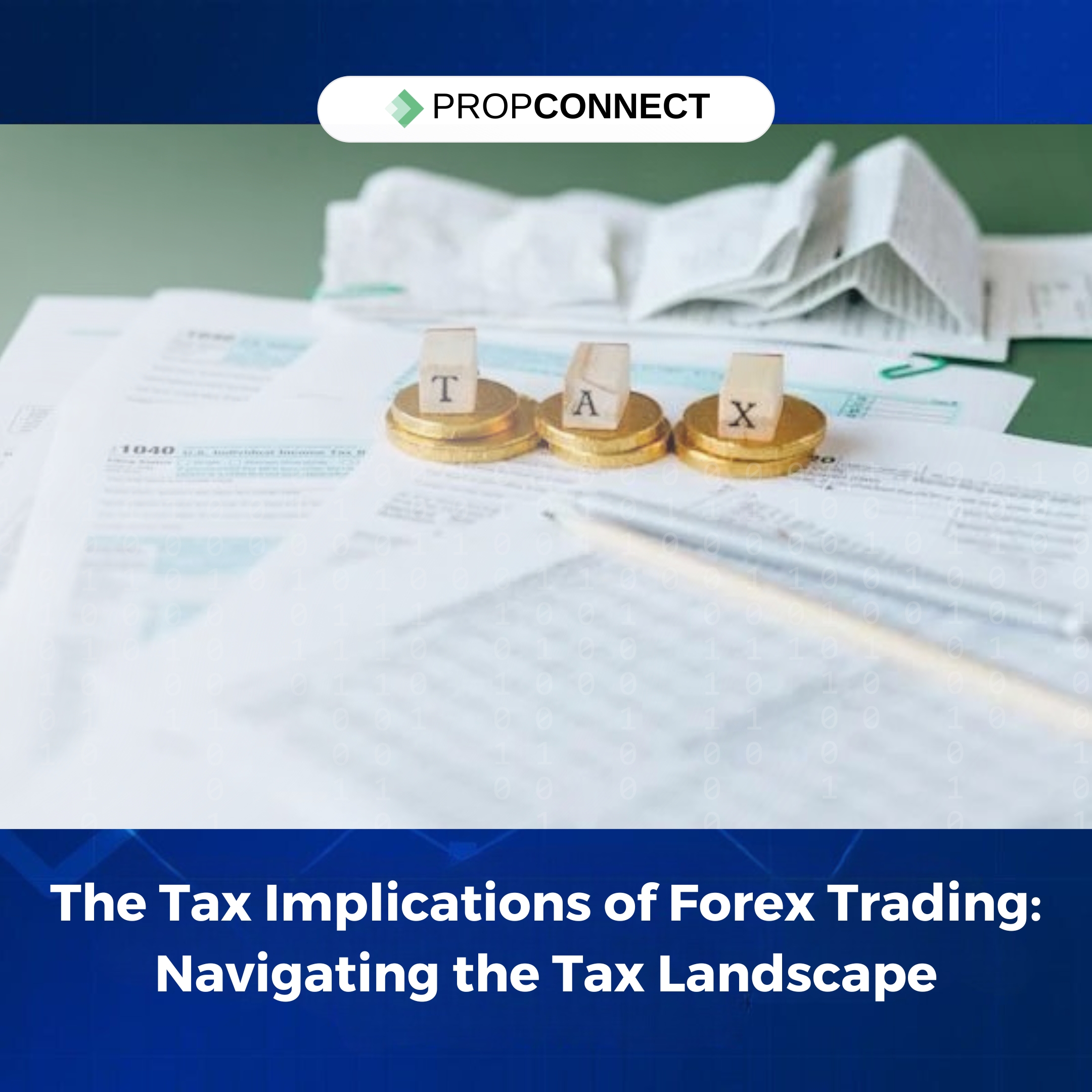Articles
The Tax Implications of Forex Trading: Navigating the Tax Landscape
Forex traders should approach taxation with caution and knowledge, whether it's determining the difference between capital gains and regular income, offsetting gains with losses, fulfilling reporting obligations, or taking unique tax treatments into consideration.

Forex trading entails some duties, including tax obligations, notwithstanding the possibility of significant earnings. To stay compliant and make wise judgments, traders must comprehend the tax implications of forex trading, just like with any other financial activity. We will examine the main tax issues of forex trading in this article, including reporting obligations, the taxation of gains and losses, and crucial factors to keep in mind for traders.
Gains from Trading Forex Are Taxed
Capital Gains vs. Ordinary Income: Whether trading activity is classified as capital gains or ordinary income has a significant impact on how gains in forex trading are taxed. Gains or losses from forex trading are recognized as capital gains in many jurisdictions if they are regarded as investments. Profits from trading, however, can be considered ordinary income if they are seen as a commercial activity.
Short-Term vs. Long-Term Capital Gains: There are two types of capital gains: short-term and long-term. The tax rates on each are different. Gains that are considered short-term are usually taxed at the trader's regular income tax rate and usually originate from assets kept for a year or less. Lower capital gains tax rates may apply to gains that are long-term, meaning they originate from assets held for longer than a year.
Tax Rates: Different jurisdictions have different capital gains taxes. It is important for traders to understand the unique tax regulations that apply to their area. For instance, long-term capital gains are taxed at a lower rate in the United States than short-term capital gains, which are subject to ordinary income tax rates.
Taxation of Losses from Forex Trading
Offsetting earnings with Losses: In order to lower their total tax obligation, forex traders might balance their earnings with losses. Losses a trader has in a particular tax year can offset gains realized at the same time. Furthermore, traders could be able to carry forward the remaining losses to offset future gains if total losses exceed gains.
Tax Deductibility of Trading Expenses: Brokerage fees, software prices, and instructional expenses are just a few of the costs that forex traders may face while engaging in trading. These trading-related costs might be deducted from taxable income in a number of jurisdictions. Traders should, however, carefully examine the local tax legislation to ascertain the extent of deductible expenses.
Requirements for Reporting
Tax Forms: Every year, traders in foreign exchange must disclose their trading activity on their tax forms. To declare capital gains and losses, traders in the US can utilize Schedule D and Form 8949. For currency trading activity, other nations can have their own unique forms or reporting requirements.
Recordkeeping: To fulfill their reporting obligations, forex traders must maintain accurate records. All of a trader's transactions, including dates, amounts, currency pairings, and any associated costs, should be carefully recorded. In addition to ensuring compliance, a well-organized recordkeeping system makes tax reporting easier.
Tax Identification Number (TIN): To comply with tax requirements, traders may be required in some jurisdictions to get a Tax Identification Number (TIN). In tax-related situations, this number is used to uniquely identify individuals or companies. To find out if a TIN is necessary for their forex trading operations, traders should get in touch with their local tax authorities.
Particular Points to Remember for Forex Traders
Mark-to-Market Accounting: Traders may be able to employ mark-to-market accounting in some countries. By using this strategy, traders consider any gains or losses as though they were realized at the end of the tax year, when they are deemed to have sold all of their tradable assets. For active traders, this can streamline the reporting procedure.
Tax Treaties: Foreign exchange traders should be aware of any tax agreements that may exist between their home nation and the nations in which they trade foreign exchange. Tax treaties may lessen the possibility of double taxation by affecting how gains and losses are treated.
Seek Professional counsel: Forex traders are recommended to obtain professional tax counsel due to the complexity of tax laws and the possibility of treatment differences. Tax experts with experience in forex trading may assist traders in navigating the complexities of tax legislation, optimizing their tax positions, and guaranteeing local law compliance.
In summary, for traders to maximize their financial situations and preserve compliance with tax rules, it is imperative that they comprehend the tax ramifications of forex trading. Forex traders should approach taxation with caution and knowledge, whether it's determining the difference between capital gains and regular income, offsetting gains with losses, fulfilling reporting obligations, or taking unique tax treatments into consideration. Traders can effectively negotiate the tax terrain by seeking competent assistance and remaining up-to-date on tax regulations within their jurisdiction.